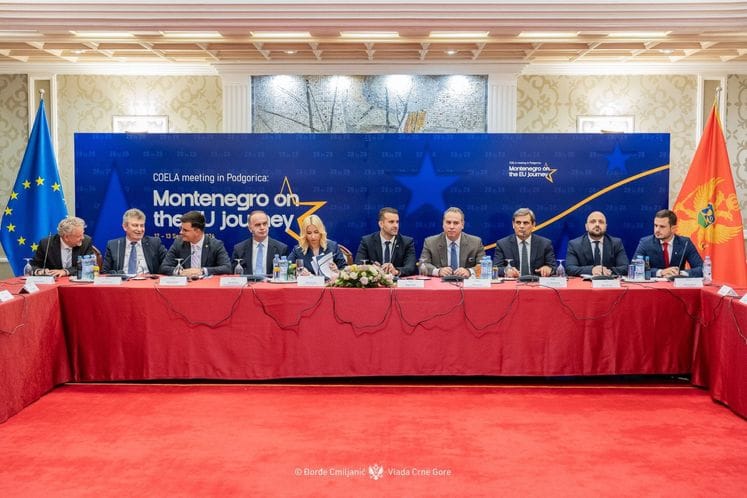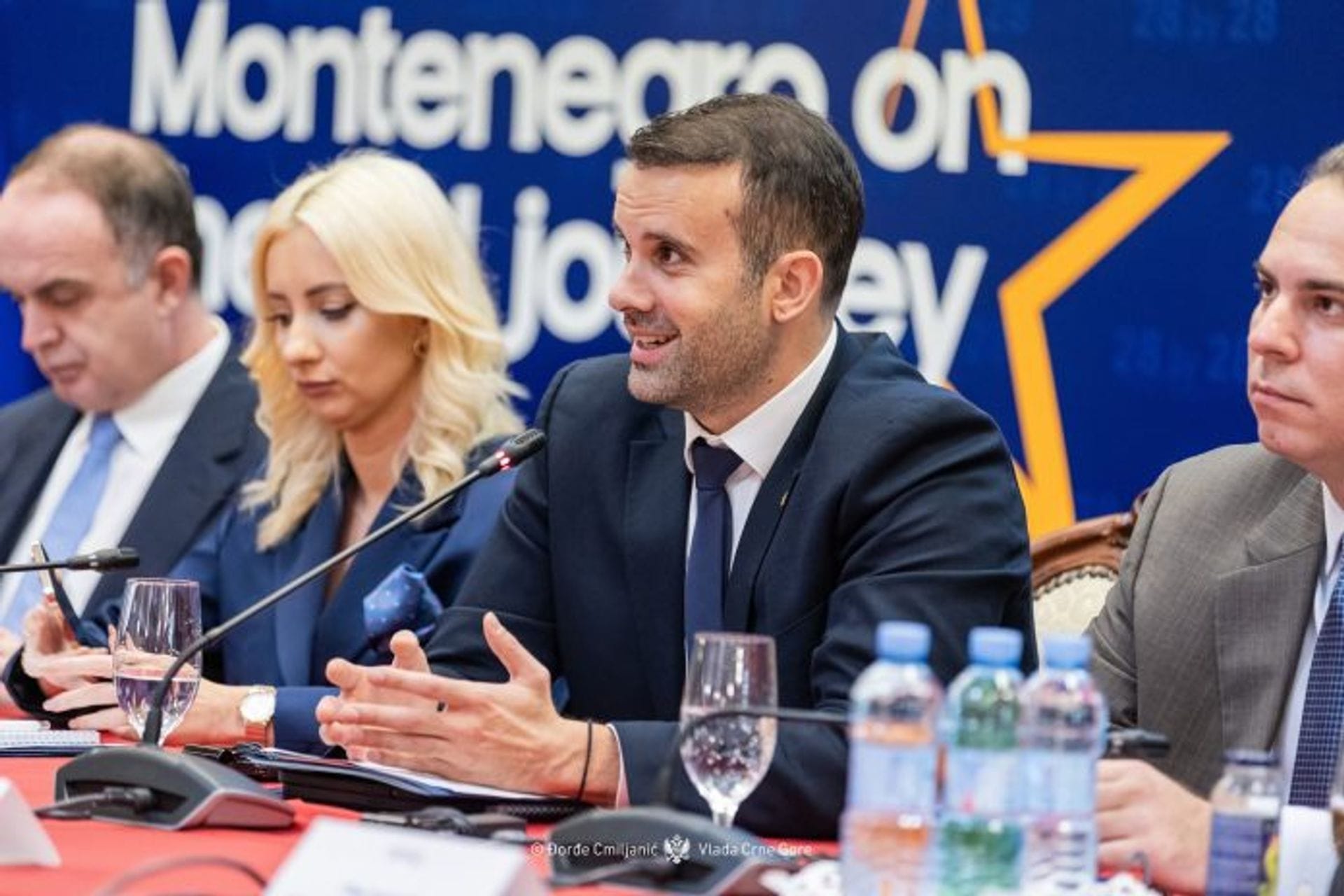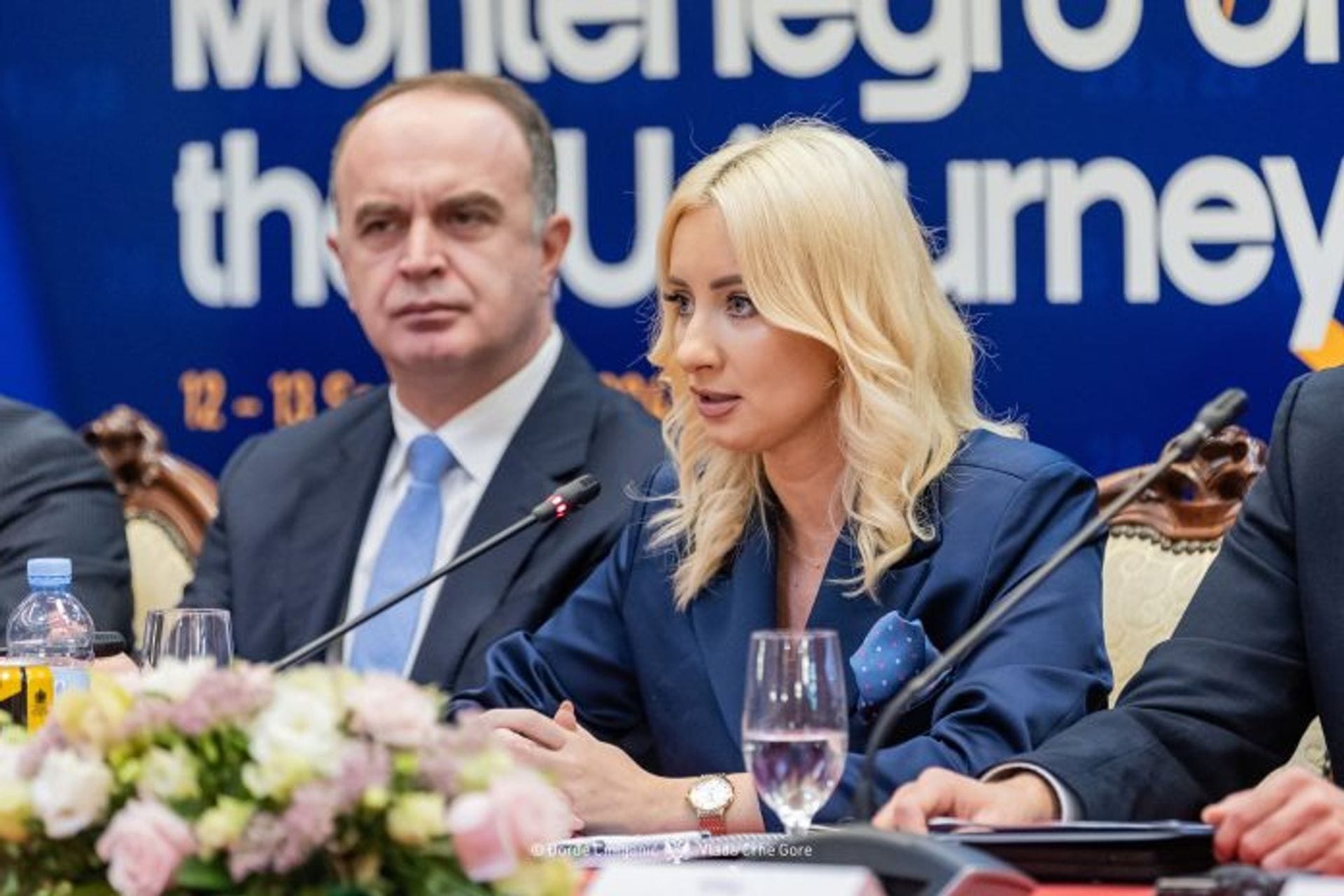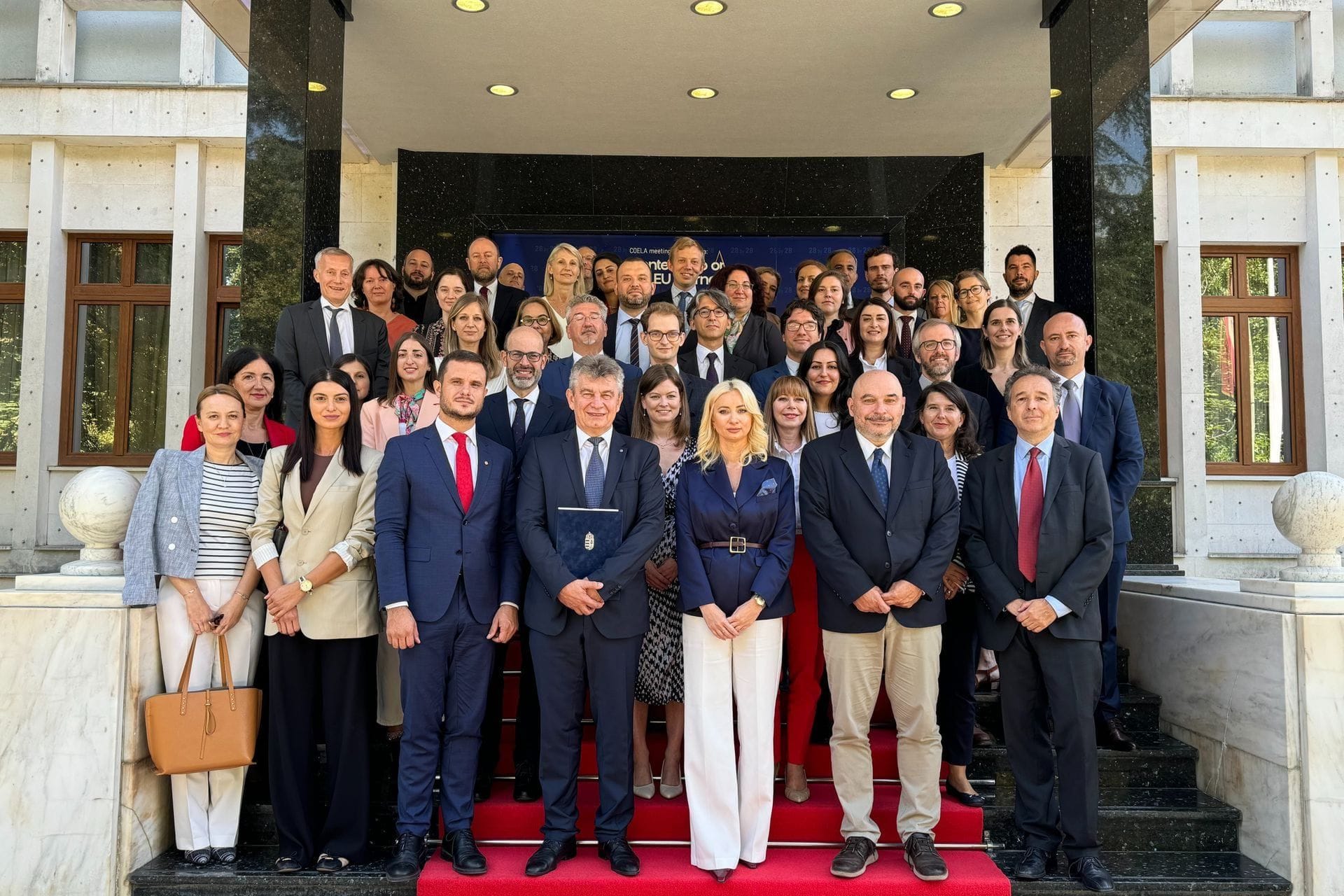- Government of Montenegro
Spajić meets COELA members: EU ready for new membe...
Spajić meets COELA members: EU ready for new members – Montenegro as an example for candidate countries

Montenegro is ready to seize the historic moment and join the European Union, and the entire society should participate in this process, it was emphasised during the meeting between Prime Minister Milojko Spajić and diplomats from the 27 EU member states, who are paying a two-day working visit to Montenegro.
Receiving IBAR seemed like an insurmountable challenge for many previous governments. We succeeded together, with your support. We understand that this process requires effort from both sides, and we greatly appreciate the significant contribution you provide us on a daily basis, Prime Minister Milojko Spajić said.
Today in Podgorica, he received members of the Working Party on Enlargement and Countries Negotiating Accession to the EU (COELA) and exchanged views on the progress Montenegro has made in the negotiation process and the future obligations aimed at completing the process and joining the EU.
The Prime Minister noted that receiving IBAR is only the beginning.
We know it represents the minimum requirement for EU accession. We are not satisfied with just that. We will continue with demanding reforms in Chapters 23 and 24. You can count on Montenegro's full commitment to the rule of law until the very end, Spajić stated.
He announced that the Reform Agenda would be adopted soon.
We have set high standards and raised the bar because we are not afraid of challenges. We want everyone in the administration to understand that this is an achievable goal and that EU membership is a reality, the Prime Minister said.

Minister of European Affairs Maida Gorčević noted that the Government has made significant progress in accession negotiations, particularly in meeting the interim benchmarks for Chapters 23 and 24. She highlighted the resolution of sensitive issues within the judiciary as a clear signal of Montenegro’s determination to do everything necessary to accelerate negotiations with the EU.
Given that our assessment aligns with that of the European Commission, I can state that by the end of the year, Montenegro will be ready to close at least four negotiation chapters: Chapter 7 – Intellectual Property Law, Chapter 10 – Information Society and Media, Chapter 20 – Entreprise and Industrial Policy, and Chapter 31 – Foreign, Security and Defence Policy, Gorčević said.
The Minister also emphasised that Montenegro’s full alignment with the EU's Common Foreign and Security Policy, the use of the euro, 80% public support for EU membership, NATO membership, the lack of open disputes with neighbouring countries, and its status as a leader in EU accession negotiations clearly demonstrate Montenegro's readiness to become the next EU member state, further contributing to regional stability and bolstering the Western Balkans' aspirations for EU integration.

Newly appointed Ambassador of the European Union to Montenegro Johann Sattler highlighted the importance of the COELA members' visit to Montenegro.
This visit is crucial for two main reasons. First, Montenegro has shown that it can progress. I was pleased to see, even before arriving in Montenegro, that you passed the so-called IBAR test – the IBAR on the rule of law, the judiciary, and the very important laws that were passed. This is a good moment, and I urge all decision-makers in the country, both the government and the opposition, as EU membership is a process for the entire society, to seize this moment. The second important thing is that the European Union is ready for new member states. My boss, European Commission President Ursula von der Leyen, speaks of a historic call to complete the EU. Montenegro can serve as an example in this process, Ambassador Sattler said.
Hungarian Ambassador József Négyesi emphasised that the enlargement policy is one of the EU's most successful policies and that it is essential for it to remain merit-based, balanced, and credible.
Hungary supported Montenegro during its NATO accession and seeks to do the same in its EU accession process, which we will work on during our EU Presidency, he added.
Montenegro aims to close several chapters during the Hungarian Presidency. We can help Montenegro significantly in the coming period, but you must understand that this success can only be achieved together. The task and responsibility of Montenegrin politicians, the state, and political leaders is to maintain political stability, which will enable the EU to open its doors to Montenegro after many years. It is important to show that Montenegro is a stable NATO member that treats EU accession as a national interest. I ask you to be Hungary's partner during the EU Presidency and ensure that Montenegro makes significant progress in the EU accession process, Ambassador Négyesi said.
Representatives of EU member states praised the results Montenegro has achieved over the past year and expressed full support for accelerating reforms so that Montenegro fulfills all obligations and becomes the next EU member state. They emphasised that, in addition to technical and expert support, the Government and the negotiation structure can count on continued substantial financial assistance from European funds and programmes, which will allow reforms to be implemented more quickly, efficiently, and effectively, and for citizens to feel the benefits of the European integration process. They expressed confidence that Montenegro's progress will encourage other countries in the region to accelerate their path to the EU.

In two panels moderated by Chief Negotiator Predrag Zenović, COELA members met with government representatives and the negotiation structure. At the panel dedicated to the political aspects of the process, EU member state representatives spoke with Deputy Prime Ministers Filip Ivanović, Ervin Ibrahimović, and Nik Gjeloshaj, as well as the Ministers of Justice and Interior, Bojan Božović and Danilo Šaranović.
At the panel focused on the technical aspects of the negotiations, COELA members met with members of the negotiating structure, including negotiators Bojana Bošković and Ivona Savićević, as well as heads of negotiating working groups: Nebojša Mugoša, Ružica Mišković, Maja Jokanović, Snežana Radović, Jelena Jovetić, and Anđela Gajević.

